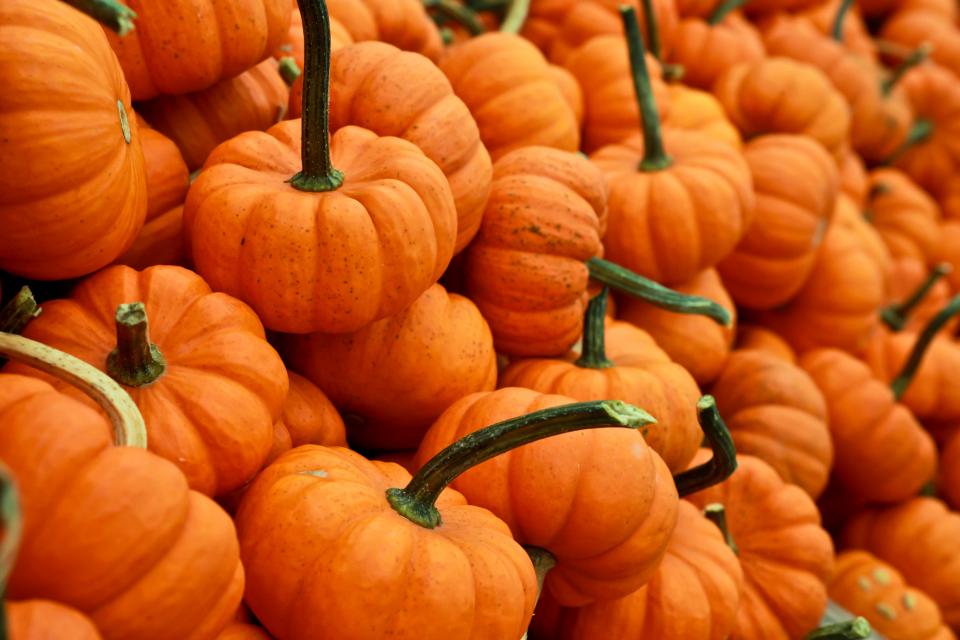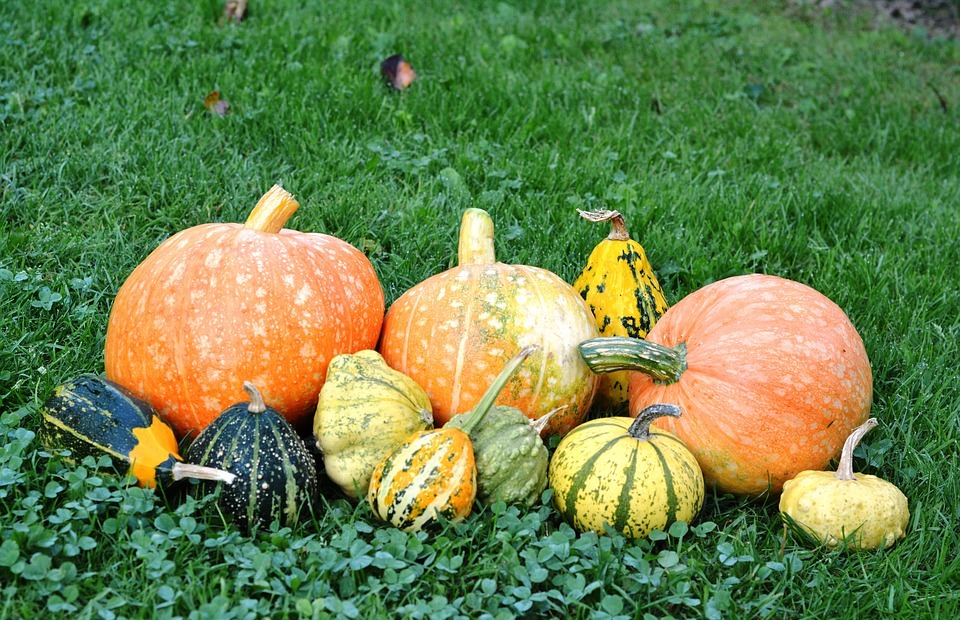This comprehensive guide will provide a detailed look at the suitability of pumpkin for rabbit consumption. We'll explore the nutritional benefits, potential risks, safe feeding practices, and common questions regarding pumpkin inclusion in your rabbit's diet.
Part 1: Understanding Pumpkin's Nutritional Profile

1.1. A Wealth of Vitamins and Minerals
Pumpkin is a rich source of various vitamins and minerals that can support rabbit health. Key components include:
- Vitamin A (Retinol): Essential for healthy eyesight, promoting proper development and functioning of the eyes. This vitamin is also crucial for skin health, maintaining its integrity and promoting a healthy coat.
- Vitamin C (Ascorbic Acid): An antioxidant vital for immune system health. It supports the body's natural defense mechanisms and helps protect against various illnesses.
- Vitamin E (Alpha-Tocopherol): Another powerful antioxidant, protecting cells from damage caused by free radicals and contributing to overall cell health.
- Potassium: A vital mineral for muscle function, nerve impulses, and regulating blood pressure. It plays a crucial role in maintaining proper fluid balance and supporting heart health.
- Dietary Fiber: Essential for promoting healthy digestion. It helps regulate bowel movements, prevents constipation, and supports a healthy gut microbiome.
1.2. Exploring the Benefits for Rabbits
The diverse nutrient content of pumpkin offers a range of benefits for rabbits:
- Improved Digestion: The high fiber content helps maintain a healthy digestive system, reducing the risk of digestive issues like bloating and constipation. This is especially important for rabbits, whose digestive systems are sensitive.
- Weight Management: Pumpkin is relatively low in calories, making it a valuable addition to a diet for overweight rabbits. It can help them feel full and satisfied while promoting healthy weight loss.
- Enhanced Immune System: The vitamins and minerals in pumpkin, particularly Vitamin C and E, contribute to a stronger immune system. This can help rabbits resist illness and recover more quickly from infections.
- Healthy Skin and Coat: Vitamin A promotes healthy skin and a shiny coat. This can help prevent skin irritations, dryness, and contribute to a vibrant appearance.
Part 2: Addressing Potential Risks

2.1. The Sugar Conundrum: Moderation is Key
Pumpkin contains natural sugars, which can be beneficial in moderation but can pose risks if consumed in excess. High sugar intake can lead to:
- Dental Problems: Sugar can contribute to tooth decay and other dental issues in rabbits, potentially leading to pain and discomfort. Regular dental checkups are crucial.
- Weight Gain: Excessive sugar intake can contribute to weight gain and obesity, increasing the risk of various health problems in rabbits.
- Diabetes: In some cases, high sugar intake can contribute to diabetes in rabbits, a serious condition requiring careful management.
2.2. Pumpkin Seeds: A Choking Hazard
While pumpkin flesh is safe for rabbits, pumpkin seeds should be avoided entirely. They pose a choking hazard and can cause digestive issues.
2.3. Pumpkin Pie Filling: A Strict No-No
Pumpkin pie filling, laden with sugar, spices, and other ingredients harmful to rabbits, should never be fed to your furry friend.
Part 3: Safe Feeding Practices for Optimal Rabbit Health
3.1. Choosing the Right Pumpkin: Fresh is Best
- Fresh Pumpkin: Opt for fresh, unprocessed pumpkin whenever possible. Canned or processed pumpkin often contains added sugar, preservatives, and other ingredients detrimental to rabbits.
- Organic: Choosing organic pumpkins minimizes exposure to pesticides and herbicides that can be harmful to rabbits.
- Small Portions: Start with small portions of pumpkin and gradually increase the amount as your rabbit tolerates it. Monitor their response closely to ensure they are not experiencing any digestive issues.
3.2. Preparing Pumpkin for Your Rabbit: Simple Steps
- Remove Seeds and Rind: Thoroughly remove the seeds and rind from the pumpkin before feeding it to your rabbit. Both can be a choking hazard and difficult to digest.
- Cook or Roast: Cooking or roasting the pumpkin can enhance its digestibility and make it more palatable for some rabbits. However, avoid adding any salt, pepper, or other seasonings, as these can be harmful.
3.3. Frequency of Feeding: Occasional Treats
- Occasional Treat: Pumpkin should be given as an occasional treat, not as a staple food. It should not replace the essential hay, fresh greens, and other vegetables in a rabbit's diet.
- No More Than Once a Week: A small portion of pumpkin once or twice a week is generally considered safe.
- Monitor Individual Response: Pay close attention to your rabbit's response to pumpkin. Some rabbits may be more sensitive to certain foods, so adjust the frequency and amount accordingly.
Part 4: Pumpkin Varieties for Rabbits
4.1. Sugar Pumpkin: A Sweet Treat
Sugar pumpkins, often used for baking, are a good choice for rabbits due to their sweetness and versatility. Their flavor is often appealing to rabbits.
4.2. Pie Pumpkin: A Similar Alternative
Pie pumpkins, similar to sugar pumpkins, can be safely offered to rabbits, but their flavor may not be as appealing as sugar pumpkins.
4.3. Exploring Other Options: Butternut Squash and Acorn Squash
While sugar and pie pumpkins are most common, other pumpkin varieties like butternut squash and acorn squash can also be enjoyed in moderation by rabbits. Their nutritional profiles are similar, making them suitable alternatives.
Part 5: Alternatives to Pumpkin: Expanding Dietary Options
- Other Vegetables: Consider offering other safe vegetables like carrots, celery, bell peppers, and romaine lettuce as treats. These offer different nutrients and flavors.
- Herbs: Fresh parsley, cilantro, and basil can be great additions to a rabbit's diet, providing flavor and some additional nutrients.
- Hay: The cornerstone of a rabbit's diet should be high-quality hay, providing essential fiber and nutrients for optimal health.
Part 6: Consulting Your Veterinarian: Personalized Advice
If you have any concerns about feeding pumpkin to your rabbit, always consult your veterinarian. They can provide personalized advice based on your rabbit's health, age, breed, and dietary needs.
Part 7: Understanding Rabbit Body Language: Recognizing Signs of Trouble
7.1. Observing Your Rabbit's Behavior: Early Detection is Key
Rabbits are often stoic animals, making it crucial to pay close attention to their behavior for any subtle changes that might indicate health issues.
7.2. Common Signs of Digestive Distress: Paying Attention to Symptoms
- Diarrhea: A change in stool consistency and frequency can indicate digestive upset.
- Gas: Increased gas or bloating can signal discomfort and potentially more serious digestive problems.
- Loss of Appetite: A significant decrease in food intake can be a sign of illness or discomfort.
- Lethargy: A rabbit that is less active or seems sluggish might be experiencing health issues.
7.3. Prompt Action: Contacting Your Veterinarian
If you observe any of these signs in your rabbit, it's crucial to contact your veterinarian immediately. Early diagnosis and treatment can significantly improve the chances of a full recovery.
Part 8: FAQs: Clearing Up Common Questions
8.1. Can rabbits eat pumpkin skin?
No, rabbit should not eat pumpkin skin. It is difficult to digest and can pose a choking hazard.
8.2. How much pumpkin can a rabbit eat?
A small portion of pumpkin once or twice a week is generally safe for rabbits. The amount will vary depending on the rabbit's size and weight.
8.3. Can baby rabbits eat pumpkin?
It's best to avoid giving pumpkin to baby rabbits as their digestive systems are still developing. Introduce new foods gradually when they are older.
8.4. Is cooked pumpkin better for rabbits?
Cooking or roasting pumpkin can make it easier to digest, but it's not necessary. Fresh pumpkin is also safe to eat.
8.5. What are the signs of a pumpkin overdose in rabbits?
Signs of a pumpkin overdose in rabbits can include diarrhoea, gas, and bloating. If you suspect your rabbit has eaten too much pumpkin, contact your veterinarian immediately.
8.6. Can rabbits eat pumpkin seeds?
No, pumpkin seeds can be a choking hazard for rabbits and should be avoided.
8.7. Can rabbits eat pumpkin puree?
Pumpkin puree is safe for rabbits as long as it's unsweetened and free of any added ingredients. However, it should be offered in moderation.
Everyone is watching
-

Do Rabbits Lay Eggs? (The Surprising Truth)
OTHER TYPES OF PETSThis article will unravel the common misconception that rabbits lay eggs, exploring the fascinating world of r...
-

What's a Group of Rabbits Called? (A Comprehensive Guide)
OTHER TYPES OF PETSThis article delves into the fascinating world of rabbits, exploring the various terms used to describe a grou...
-

Can Rabbits Eat Grapes? A Guide to Safe Rabbit Treats
OTHER TYPES OF PETSThis comprehensive guide will explore the safety and suitability of grapes for rabbits, providing detailed inf...
-

Predators That Hunt Rabbits: A Guide to Natural Enemies
OTHER TYPES OF PETSI've always been fascinated by the circle of life, that delicate dance between predator and prey. Growing up ...
-

Are Rabbits Nocturnal Animals?
OTHER TYPES OF PETSThe question of whether rabbits are nocturnal animals is a fascinating one, with a surprisingly complex answer...
